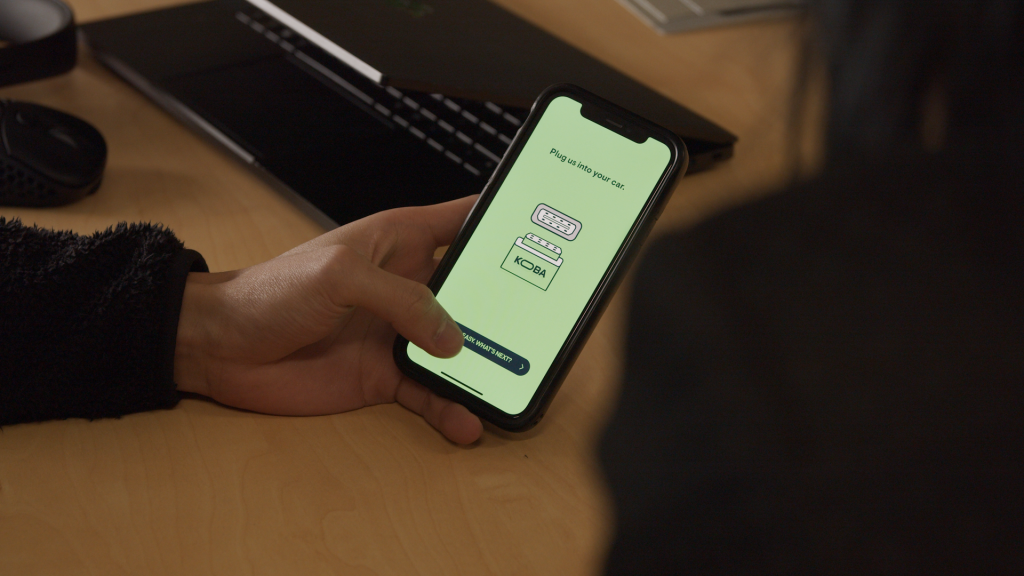Technology is bringing real-time data to car insurance to help reduce annual premiums.
Key Takeaways
- Real-time data created by your vehicle informs what you pay for insurance
- Every Tesla is pre-connected to the internet; Mercedes, BMW, and Ford have online connectivity
- KOBA plans to launch a greenhouse gas emissions tracker to help drivers understand their immediate and real impact on carbon emissions

Data-driven insurance, also known as ‘insurtech’ is relatively new to the Australian market, but gaining momentum. In fact, 50% of insurance customers are looking at – and prepared to – switch to an insurtech provider, a 2021 Capegemini report found.
KOBA is one such insurtech company aiming to make premiums more accurate and affordable for consumers. It launched in November 2021, and uses a small monitoring device that plugs into a user’s vehicle to help accurately measure the driver’s risk profile.
“Instead of relying on statistical averages to calculate risk, we can use technology to obtain accurate real-time data,” says KOBA founder Andrew Wong.
“If we know somebody’s usage is low, their risk is lower and therefore their premiums should be less.”
In a Q&A with Forbes Australia, Wong explains the technology and its implication for customers.
What is connected car insurance?
Wong: Connected car insurance uses the real time data created by your vehicle to inform what you pay for insurance. Data shared usually falls into three categories – location data, behavioural data and status data. For example, GPS and location data is used to determine premiums. Behavioural data includes acceleration, braking, cornering and distance whilst status data includes the health of the car battery, seat belt status and whether the sunroof is open or closed.
What are the benefits for the driver, the insurer, and any other parties?
Wong: Insurance rates are created by aggregating claims data across a vast number of policyholders over a long period of time. Connected car insurance give insurers the ability to create more personalised prices. For consumers it means they can pay a premium which has a more true reflection of risk, and sharing data across third-party vendors enables claims assessing and repairs to be sped up.
Where is it already in use and what are the learnings from where it is already operational?
Wong: It’s already being used globally in many markets. Tesla is probably the most publicly known brand to use telematics. In many countries, connected car data is used to help unlock lower premiums and greater access to mobility solutions for under-represented audiences and/or youth drivers.
How does this style of insurance fix global issues in this sector and industry?
Wong: With the cost of petrol going up and the push for more electric vehicles (ACT ban on ICE’s by 2035) on Australian roads, more cars will be natively connected in the coming years. Later this year KOBA is launching a greenhouse gas emissions tracker to help all drivers understand their immediate and real impact on carbon emissions. KOBA consumers can make conscious and educated decisions about reducing the environmental factors created by their car, with the added benefit that with KOBA the less you drive the more you save on insurance.
What cars will it apply to and what sort of take-up do you expect to see from car manufacturers and from drivers?
Wong: Every year, car manufacturers are natively connecting more and more models. It’s forecast that 90% of new car sales will be preconnected in the next five years. Every Tesla is pre-connected to the internet, Mercedes, BMW, and Ford have all been connected online.
Is there anything else we should know about this innovation?
Wong: Other than changing insurers, consumers can’t really control what they pay for insurance. At KOBA, we don’t think this is right. Part of KOBA’s mission is to bring more transparency to the market. For the first time, consumer can control what they pay by the distance they travel.